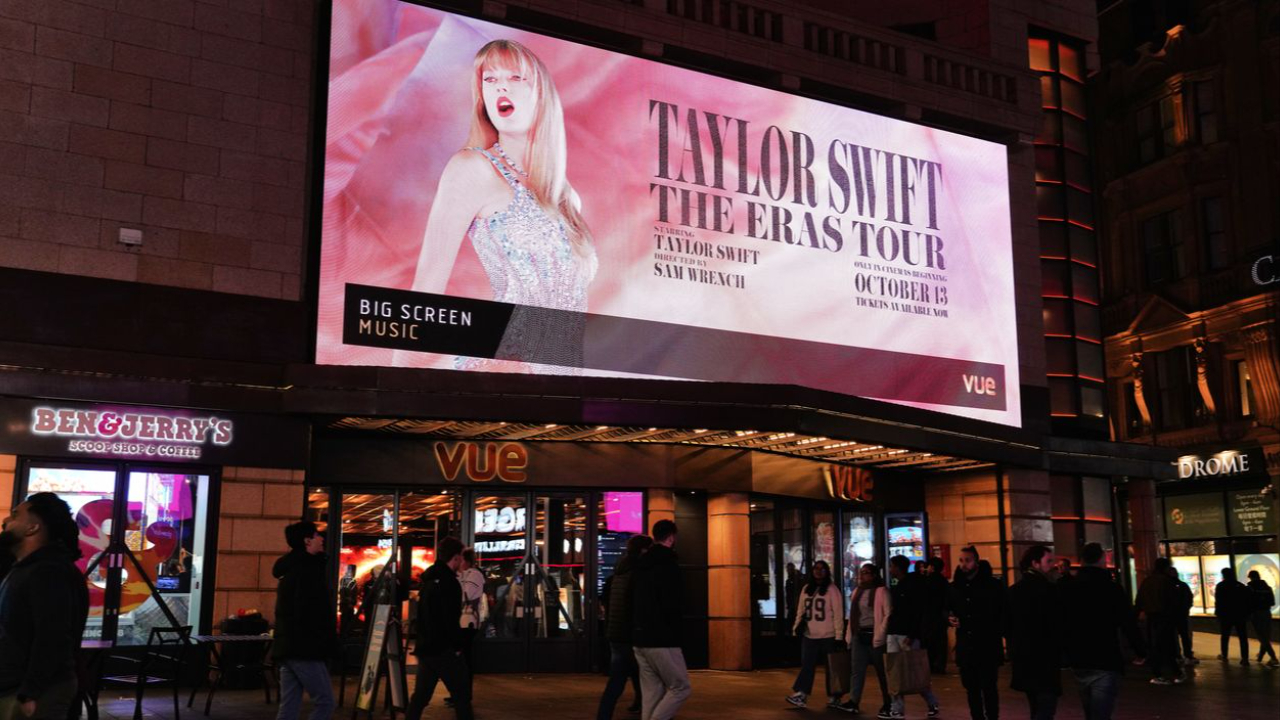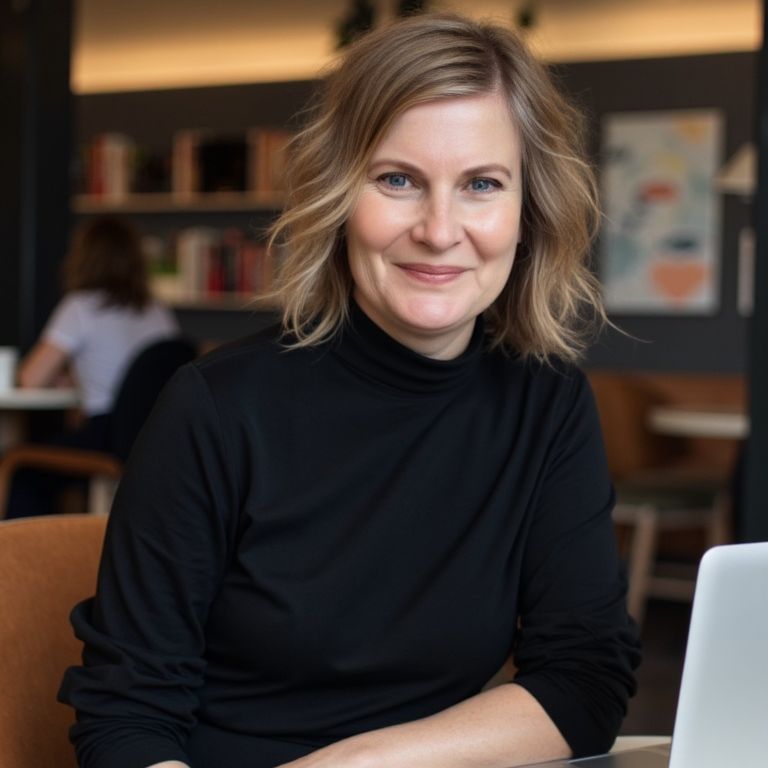Got a visibility story to share?
Dec 15, 2023
We're gathering visibility stories from women and non-binary people to include in our upcoming podcast show.
Your visibility story might be about being ignored, overlooked, misunderstood, lectured to, or minimised in some way or it might be about how you have triumphed in your efforts to be seen and/or heard.
We want to share these stories and the ways we can break through the unconscious filters that impact our lives.
We want to share tips to people know they're not alone and are resourced to better deal with such a situation the next time it arises.
Do you have a story to share with us?
NB: If you'd like some guidance about the level of detail required or the types of stories we'll be sharing, this page includes three examples of stories we'll be including in the show.
CATCALLING
When I was about 14 years old I recall walking along the road from one friend's house to another. There were three of us. We were meandering along in a bubble of freedom, happiness and independence. Cars drove by as we'd doubled over laughing about something that had happened at school. Then, as the laughing subsided I became aware of an unexpected noise; a slowing of a car rather than the familiar whoosh as it passed. Then tooting on the horn and cat calling from the window.
The three of us edged closer together and, as one, stepped away from the side of the road. We tried to ignore the older boys in the car and kept walking.
It's hard to describe the impact of being fully in your body, walking along in harmony with the world, only to be jolted out of that ease and informed that your body is in fact, an object to others. That the male gaze has a view of your body's function. That its function is sexual.
In that brief moment, the message had been conveyed. We knew our place and they drove off.
We looked at each other with a sense of shock that our bubble of loveliness had been penetrated so abruptly.
But if a patriarchal society teaches girls and women anything, it's to dismiss threatening moments as nothing. Mere trifles. We three had been well trained in this lesson and so, a little shaken up, we pretended nothing had happened.
Then we saw the car do a u-turn further up the road.
'They coming back,' my friend noted. Her voice concerned. My heart beat racing.
It's impossible to describe the thoughts that went through my head in that moment. All of them related to survival.
The same theme seemed to be dominating my friend's head.
'Adam lives over there,' she said. 'Let's see if he's home'.
And so we walked, with a confidence we didn't feel, across the road toward the front lawn of our school friend's house. As we stepped from the gutter onto the grass, the car cruised by. Very slowly. Menace in the air. No words this time. Just leering.
My nervous system was sparking with messages to take flight as I considered a map of the streets, wondering where we could hide if Adam wasn't home.
And then, as we crossed the lawn, Adam's mum opened the front door, and we all but ran to her in relief.
THE ODD ONE OUT
There was a game we used to play as a kid; You're The Odd One Out. We'd go around the circle and find something that distinguished one individual from the group and they'd be 'out'. The goal was to be the last person standing. The one who had nothing discernibly different about them. Visibility being awarded to the least remarkable.
As a child I hated that game for how it made people feel. For the insistence on conformity. For the shame that was imposed upon you for being different; an outsider. When I think about the town in which I grew up, it sums up with absolute precision what it was like to live there in the '70s and '80s.
As an adult it seems an absurd game. Who on earth would want to be the winner? Who would feel a sense of admiration that nothing about them distinguished them from the rest of the group? Who would be proud of such an absence?
But 40 years later, as I turn it around in my mind and adjust the lens, I remember that actually, the game was about power. Winning was synonymous with dominance. It signalled to the group that one identity ought to trump all others. 'You will conform to me, to my rules, my values, my appearance,' was what we all heard.
The manipulation started before the game began, in the mere suggestion of it. There was a split second between mentioning it and initiating it. A deliberate ploy which guaranteed that the voice of the person who proposed the game dominated, finding fault with others, using shame to silence.
Flailing to catch up, and fighting to stay on the right side of the bully, others laughed along, figuring if they couldn't win, they could at least be one of the last people standing.
Playing that game taught me a lot about choosing your friends wisely. That visibility can be used to harm as well as reward. More than that, it taught me about systemic inequality. Why it persists and why its defended, even by people who don't benefit from it.
ASKING FOR MONEY
Recently I was chasing a student for an overdue payment. Not a week or month overdue but five months late. She had finished the program but for a variety of reasons associated with lost cards and travel and school holidays and other commitments, still hadn't paid the full program fee. (Tip for fellow business owners; do all you can to avoid a situation where a person is still paying their bill after you have finished delivering on your side of the agreement.)
She had moved on. I had moved on. I started to wonder if I should just let if go. Was it being petty to ask for what I was owed?
'Of course not,' said confident me. 'Confident me' being the part of me that thinks the entire situation was absurd and would never knowingly act similarly, were the situation reversed.
'Ah but you did,' a little voice whispered to me. And back flashed a memory. My first year in business. Before I'd actually offered any services. Getting frustrated when I attended workshops which I felt I could do a better job of.
Only I wasn't doing it.
I received an invoice for one such workshop which had a same day due date. I recall looking at that and assuming it would be fine to pay at the end of the week; the day I paid my bills. I didn't let the workshop facilitator know that's what I was planning though. I just assumed it would be fine.
This assumption arose from a subtle but pervasive thought; she won't mind if it's late. She's lovely. She will be accommodating.
I now recognise this as me imposing good girl conditioning on another woman. At the time, I just assumed there'd be no repercussions for inconveniencing her. Which is precisely what patriarchy relies on. Our assumption that women will be fine, will smile when annoyed, will not stand up for themselves or ask for what they want.
I received that invoice on a Monday. On the Wednesday I received a message reminding me that it hadn't been paid. I then communicated my hope that I could pay it on the Friday. Which she was fine with.
Or at least she said she was.
But in that exchange I saw something in myself that I hoped I'd never see again; a willingness to take a woman less seriously than I would a man in the same situation. To take her business less seriously. To assume that I could get away with paying when I felt ready because she wouldn't mind.
And so, I created a new rule for myself; that people who run small businesses, and especially women who run small businesses, will forever be paid on time. Further, they will be the first people I pay, not the last.
On the receiving end of this same treatment, albeit over a far longer and far less reasonable time period, I noticed a level of personal discomfort as I did the chasing. I observed a slight hurdle I kept having to step over, each time I asked to be paid what was owed me.
I realised that I was again fighting against the good girl. Albeit a much more subtle one than has shown up in the past. More of an echo of good girl conditioning which has taught that I should just accept what people decide to give me and nothing more. That asking for what is owed is pushy in some way.
During this time, I happened to watch a television show where a Filipino nanny demanded to be paid for work she'd performed. She was unapologetic to her white employer about the fact that she'd done the work and deserved to be paid.
And although it was a TV show, as I thought about the racial and gendered conditioning she was upending in laying down such a firm line, I cheered along, thrilled to see her stand firmly in her power.
And in that moment, my own double standard became apparent.
Without question I'd be comfortable championing the rights of other women to be paid for their services.
Why then, when required to act as my own advocate, did I continue to hold myself hostage with stories about not being pushy or too demanding? Was I expecting something of other women that I didn't expect of myself? Was I still subconsciously putting a woman's business - this time my own - at the back of the line?
It's clear my former student was. But I wonder if I hadn't half expected her to.
I decided to draw my own line in the sand.
I followed up.
Again.
And payment was made the next day.
**********
Want to submit a story for the podcast? You'll find our submission form right here.





